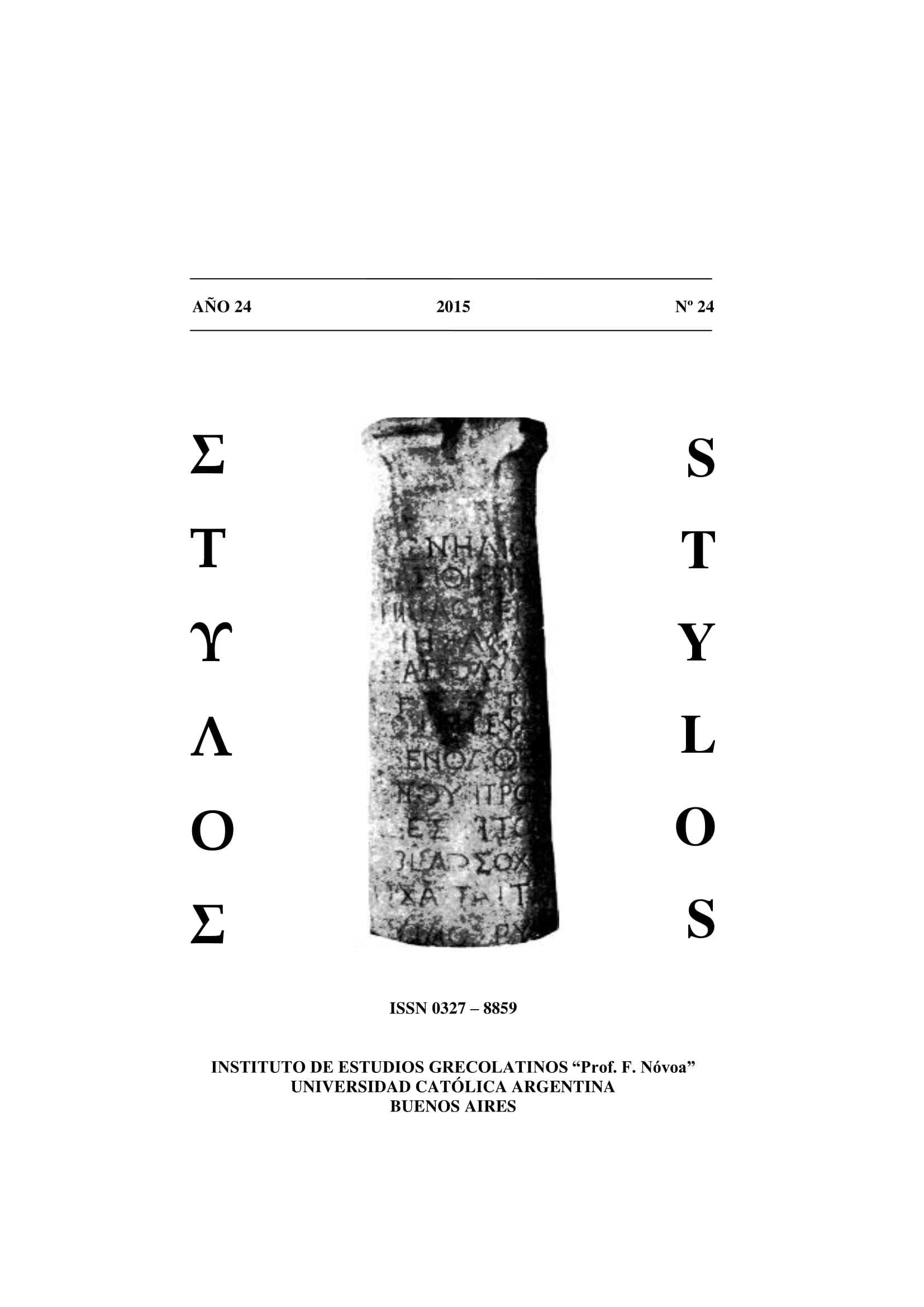REPRESENTACIÓN Y CONOCIMIENTO EN LUCRECIO
Keywords:
Lucretius, Epicurus, simulacrum, mental representations, noetics.Abstract
Was Lucretius a mere translator of Epicurus’ philosophy? Or is it possible to identify any thesis actively rethought by the Roman philosopher? The scholars usually interpret the Lucretian philosophy as a simple conceptual transposition. Indeed, it is often intended to compensate the scarcity of the Epicurus’ work by replenishing the missing concepts with lucretian ideas. In this paper, however, this assumption will be rejected. The aim is to analyze the lucretian notion of simulacrum, as reception of the Epicurus’ εἴδωλον. A few passages of De rerum natura IV and of the “Epistle to Herodotus” will be comparatively analized. It will be argued that the fragments of Epicurus, although short, allow the inference that Lucretius introduced significant innovations in the concept of representation rather than just transposing ideas.
Downloads
Downloads
Published
How to Cite
Issue
Section
License






